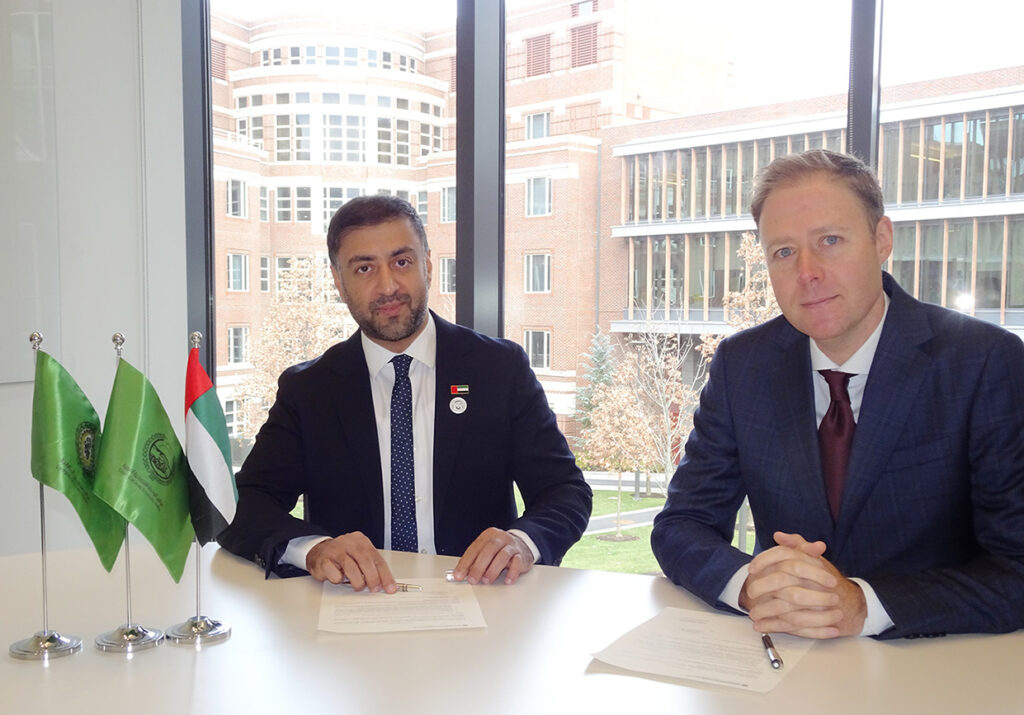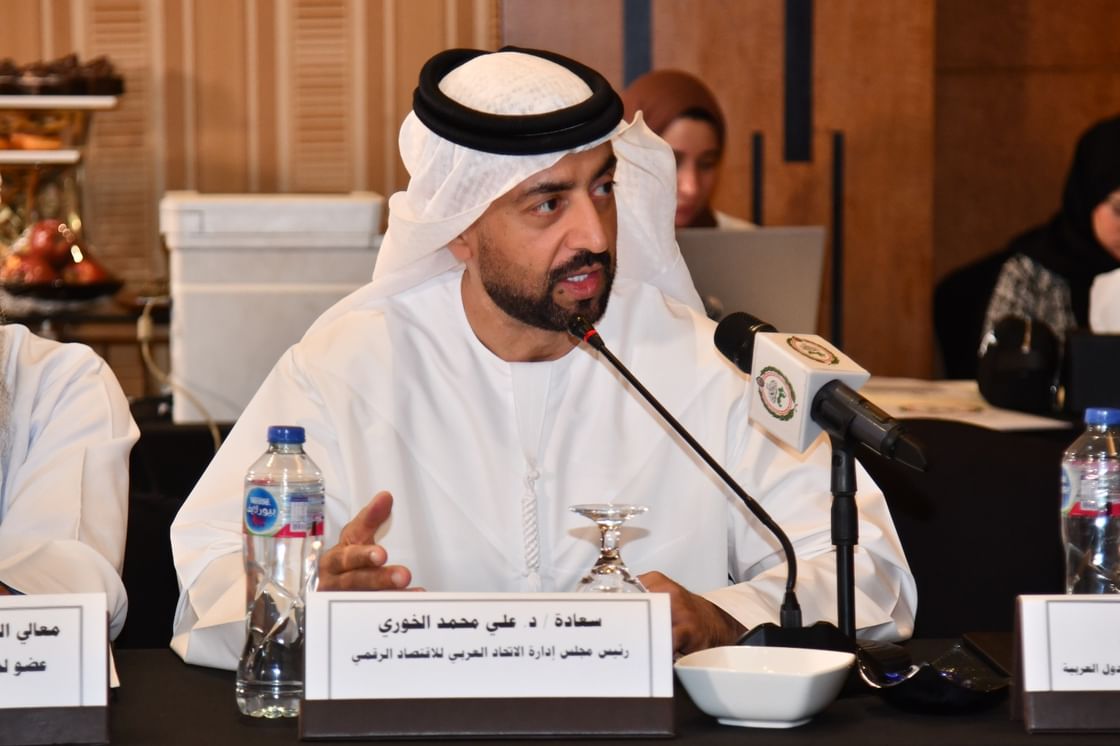Following up on publishing the first draft of the Arab common vision of digital economy, by Arab Economic Unity Council and League of Arab States. A delegation headed by Dr. Ali Mohammed Al-Khouri, Council Advisor, performed a visit to Harvard university, to continue the second phase of the strategic Arab common vision for digital economy, this phase includes analyzing and determining Arab technological skills, and improving the capabilities of Arab governments and their readiness for digitization. The agreement for phase two was finalized in the university campus, in the city of Cambridge, Massachusetts, USA. The meeting also had a review of the delegation for the profiles of professors and experts of Harvard University in the fields of digital transformation, smart cities, and eGovernment services.
The agreement aims at completing the review of strategic Arab common vision for digital economy, with specific concentration on expected impacts of the vision’s programs and projects on the regional urgent requirements, and the prosperity of Arab countries’ citizens, and regulatory frameworks for digital transformation, and governance of national digital strategies, moreover, reviewing the capabilities and skills of workforce for a sample of member states of the Arab League, and providing recommendations related to general policy and personnel to improve the readiness of Arab governments and their capabilities to implement the programs of the strategic vision.
Also, Harvard University reviewed during the meeting executive leaders’ preparation program for digital transformation, which the university presents to guarantee sustaining successful change, through enabling personnel and building leadership and management competencies. The program includes providing tools and resources for leaders, as well as experience and competency required to identify and manage risks and opportunities, as well as the impact of digital economy on public interest.
Professor David Eaves, Lecturer of Public Policy, Manager, Digital Department, Harvard Kennedy School, thanked H.H. Sheikh Mohammed bin Zayed Al Nahyan, Crown Prince of the Emirate of Abu Dhabi and Deputy Supreme Commander of the United Arab Emirates Armed Forces, for sponsoring and supporting the strategic Arab common vision for digital economy, which Harvard University participated in preparing and reviewing the first draft of it. He also showed his appreciation for the efforts of H.H. in working on the renaissance of the Arab region as a whole, and enabling it to cope with the era of digital revolution, he stated: “we are happy today to be part of developing the Arab digital economy, and the strategic vision, from which many practical projects and programs stemmed to help all the segments of Arab societies, and aligns with our objectives for spreading and adopting digital technology, and governing digital operations and improving trust in them, and encouraging equal economic opportunities.”
Dr. Al-Khouri emphasized the importance of the second phase with Harvard University, stating: “Technology and information revolution implies a new reality on human societies, and the best utilization and handling of them will identify the shape of society systems and economic capabilities of countries. And Information and Communication Technology (ICT) skills have become an essential prerequisite for all types of employment, that’s why building skills to handle ICT must be a priority for the strategies of employment, entrepreneurship, and technology innovation. As it’s not just about the need of most jobs and companies for ICT skills, but also about how much we can benefit from it developing new work methods and styles, and finding new job opportunities, making job markets more innovative, all this would serve the global sustainability objectives related to proper work and economy growth.”
And he continued: “to implement strategic vision, education systems for example must form and prepare those ICT skills in early stages. The change rate is high, and the required skillset changes very fast as well. Therefore, everyone needs to sharpen their skills continuously to cope with those changes.”
The League work on ague of Arab States and the Arab Economic Unity Council are working on implementing mechanical mechanisms, built on scientific foundation, to enable member states of Arab League to utilize digital capabilities of their work force. Also, the partnership with Harvard would provide strategies to target investment in education, and building skills, and to help implementing frameworks and tools to reduce the shortage in researches related to digital development in the Arab world.










